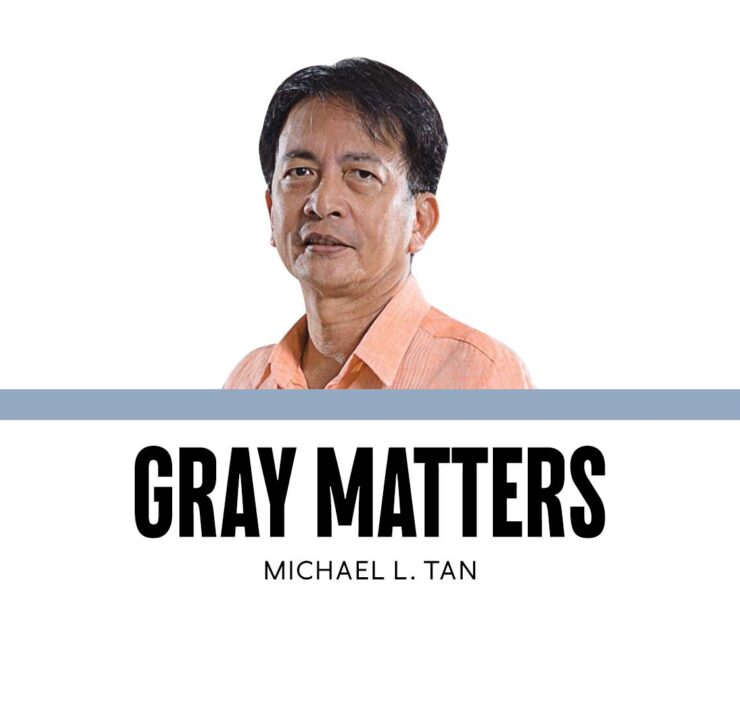Fighting chance

A characteristic of a Filipino wake is the prolonged waiting period for relatives living overseas. They regale us with stories, alternating between descriptions of the good life overseas with the usual litany of complaints about local conditions, traffic, pollution, non-existent health care, and social services to name a few.
At one recent wake, the conversations inevitably took us to Trump’s election, some of the US-based Filipinos admitting they supported Trump and his plans for mass deportation of illegal immigrants. But the consensus, always, is that it’s still better to take a chance, “migrate by hook or by crook,” even when Trump becomes president.
When expatriates share their impressions about other Filipinos wanting to migrate, I give the usual reply about financial needs, even while knowing that more and more applicants come from upper-income families (which is why they are so impressive with job and embassy interviews for visas). Then again, the good life is defined by colonial mentality and consumerism, and never mind that all the coveted goods from heaven, are readily available in the Philippines if you have the money.
Lately, I’ve thought hard about still another reason why Filipinos leave and this came as I was doing an early morning read about research on horseshoe crabs, of all animals. The article described the work of a Bangladeshi marine biologist specializing in horseshoe crabs, which are among the planet’s oldest living fossils, having been around for nearly 500 million years, antedating even the dinosaurs.
Despite the many environmental conditions that endanger horseshoe crabs, they’ve survived and are now being studied because they may offer clues on how humans might be able to improve our fighting chances to survive the climate crisis. A documentary accompanying the article summarized it as “migrate, adapt, survive.”
It seems that the hermit crab as well as many other animal species, increase their survival chances by migrating to more challenging environments, where they adapt.
Humans, too, migrate, adapt, and survive but in conditions that may be even more hazardous than what animals go through: for example, long desert treks and perilous sea voyages. Filipinos are so much more fortunate, most smuggling themselves into another country on a jet plane. TNT means tourist nang tourist, crossing borders, and reentering the target country endlessly as a tourist, getting a visa upon arrival.
Despite leaving on a jet plane, Filipino migration seems to be increasingly spurred not so much by dreams than by despair, gnawing at our psyche daily, everywhere, because it’s become so pervasive. We do hope that in a less corrupt country, we may have some kind of fighting chance.
It’s worse for older Filipinos like myself, who have seen so much corruption through the years; reaching the point where it’s hard to think of a government agency that is untouched by corruption. We’re helpless, too, even with all the assistance desks offered in government agencies because we don’t know how far up in the bureaucracy the rot has reached.
When I was young, as an activist, I would argue with elders that it’s the system that creates corruption, mainly because of low wages for government workers. I no longer believe that government salaries for many professionals have increased to the point where Filipinos are choosing to work in the public sector because wages and benefits are better. This is especially the case for education and health.
Besides better wages and benefits, the government continues to offer opportunities for more income through “rackets,” for example, field trips in public schools. The worst of the worst are the bids and contracts with substandard deliveries, from infrastructure down to medical supplies, textbooks, and IDs. Again, all that citizens ask for is a fighting chance, a level playing field.
The rationalizations in government worry me because they run parallel now, in private institutions, where employees also point to their paltry wages as reasons to take “commissions,” to pad or fabricate receipts for reimbursements, or use one of hundreds of other innovative “income-generating” gimmicks. In fact, as someone who now helps out in the private sector, I get to whine about how much more corrupt private companies be compared to the government.
The difference is that government corruption, which is stealing our money in the first place, has become much more serious in the amounts of money involved, so brazen in the use of computerized systems to steal by creating new problems that need “fixing.”
Because humans have brains to think and to rationalize, we should be more adept with migration, but the Philippine experience shows us that even migration’s fighting chances have been tainted. In the end, we will destroy each other with our deviousness and greed.
—————-
mtan@inquirer.com.ph


















